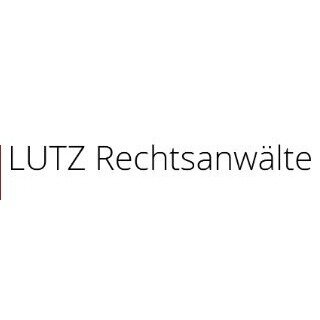Best Structured Finance Lawyers in Stuttgart
Share your needs with us, get contacted by law firms.
Free. Takes 2 min.
List of the best lawyers in Stuttgart, Germany
About Structured Finance Law in Stuttgart, Germany
Structured Finance refers to complex financial instruments and transactions that are typically designed to manage risk and facilitate funding outside traditional lending channels. In Stuttgart, Germany, structured finance plays a vital role in supporting the activities of businesses, banks, and investors in a large and diverse economic region. The sector encompasses asset-backed securities, securitization, project financing, collateralized debt obligations (CDOs), and other forms of off-balance sheet financing. Given Stuttgart's position as an economic hub, legal professionals here are highly experienced in navigating both domestic and cross-border structured finance transactions under German commercial law.
Why You May Need a Lawyer
Working with a structured finance lawyer in Stuttgart is crucial due to the technical and regulatory complexities involved. You may require legal assistance in a variety of scenarios, such as:
- Structuring or restructuring investment vehicles or financing arrangements
- Negotiating and drafting contracts for asset-backed or mortgage-backed securities
- Ensuring compliance with German and EU regulations
- Advising on tax implications and risk mitigation strategies
- Representing your interests in disputes or litigation related to structured finance transactions
- Coordinating international transactions that involve local entities or assets in the Stuttgart region
- Assessing the legal validity and enforceability of financial instruments
- Interacting with regulatory authorities or responding to regulatory inquiries
Given the multi-faceted nature of structured finance, legal guidance helps avoid costly mistakes and ensures the protection of your interests.
Local Laws Overview
Structured finance transactions in Stuttgart are primarily governed by German commercial law, especially the German Civil Code (Bürgerliches Gesetzbuch - BGB), the German Commercial Code (Handelsgesetzbuch - HGB), and various financial regulations such as the German Banking Act (Kreditwesengesetz - KWG) and the Securities Trading Act (Wertpapierhandelsgesetz - WpHG). Additionally, European Union regulations, such as Capital Requirements Regulation (CRR) and the Securitisation Regulation (Regulation (EU) 2017/2402), play a significant role. Local rules emphasize investor protection, transparency, the need for detailed disclosure, and strict standards for risk management and due diligence. Specialized permissions are required for institutions engaging in certain structured finance activities, and reporting to local oversight bodies such as BaFin (Federal Financial Supervisory Authority) is mandatory. Local courts in Stuttgart, including the Stuttgart Regional Court, can have jurisdiction over related legal disputes.
Frequently Asked Questions
What is structured finance and how is it relevant to Stuttgart?
Structured finance covers complex financial arrangements beyond traditional loans, such as securitizations or project finance deals. It enables Stuttgart's businesses and investors to access capital, manage risk, and diversify funding sources.
What laws regulate structured finance in Stuttgart?
The key laws are the German Civil Code, the German Commercial Code, the Banking Act, Securities Trading Act, and various EU regulations like the Securitisation Regulation. Local and federal authorities such as BaFin supervise compliance.
Do I need special permits to engage in structured finance activities?
Yes, depending on the activity, banks and financial institutions must obtain permissions from authorities like BaFin, especially for issuing securities or carrying out complex investment services.
Can structured finance be used by small and medium-sized companies?
While structured finance is typically used by large corporations, SMEs in Stuttgart can also benefit, especially in areas like leasing, factoring, or project finance, with proper legal structuring.
How does securitization work under German law?
Securitization involves pooling financial assets and issuing tradable securities backed by them. German law requires comprehensive documentation, transparency, and registration to protect investors and ensure proper risk transfer.
Are there specific tax considerations for structured finance transactions?
Yes, structured finance can have significant tax consequences, including VAT, withholding tax, and stamp duties. Early legal advice is recommended to optimize the structure and avoid unexpected liabilities.
What risks should I be aware of in structured finance deals?
Risks include credit risk, legal enforceability, changes in regulation, counterparty risk, and reputational risk. Proper legal review minimizes exposure and ensures contract soundness.
What are the disclosure requirements in structured finance?
Disclosure rules require providing detailed information about underlying assets, risk factors, and transaction structure to investors and regulators. Ongoing transparency is also mandated for most products.
Who regulates structured finance activities in Stuttgart?
The main regulatory body is BaFin (Federal Financial Supervisory Authority), while local courts and chambers of commerce may also play a role, especially if legal disputes arise.
How do I find the right lawyer for structured finance in Stuttgart?
Look for legal professionals or law firms with specialized experience in financial law, proven knowledge of German and EU regulatory frameworks, and a track record of advising on complex transactions in the Stuttgart region.
Additional Resources
If you need further support or in-depth information, consider the following resources:
- BaFin (Federal Financial Supervisory Authority): Offers guidance on regulatory requirements and current developments in structured finance
- Chamber of Commerce and Industry (Industrie- und Handelskammer, IHK) Stuttgart: Provides networking and advisory services for businesses engaged in finance
- German Banking Association (Bundesverband deutscher Banken): Offers insights into industry standards and best practices
- Bundesbank: Publishes financial market statistics and regulatory updates relevant to structured finance
- Federal Ministry of Finance (Bundesministerium der Finanzen): Publishes relevant legislation and guidelines
- Local bar associations (Rechtsanwaltskammer Stuttgart): Helpful for finding qualified lawyers in structured finance
Next Steps
If you believe you need legal advice in the area of structured finance in Stuttgart, follow these practical steps:
- Assess your objectives and gather all relevant documentation related to your structured finance project or inquiry.
- Research and shortlist law firms or legal specialists in structured finance with experience in the Stuttgart and German market.
- Schedule an initial consultation to discuss your specific situation, clarify fees, timelines, and strategies.
- Continue to engage your lawyer throughout the transaction to ensure compliance and address emerging legal issues.
- Stay informed of changes in laws and best practices, as structured finance regulations frequently evolve in Germany and the EU.
Consulting with a knowledgeable legal professional ensures your structured finance transactions are compliant, secure, and set up for success in Stuttgart's dynamic financial environment.
Lawzana helps you find the best lawyers and law firms in Stuttgart through a curated and pre-screened list of qualified legal professionals. Our platform offers rankings and detailed profiles of attorneys and law firms, allowing you to compare based on practice areas, including Structured Finance, experience, and client feedback.
Each profile includes a description of the firm's areas of practice, client reviews, team members and partners, year of establishment, spoken languages, office locations, contact information, social media presence, and any published articles or resources. Most firms on our platform speak English and are experienced in both local and international legal matters.
Get a quote from top-rated law firms in Stuttgart, Germany — quickly, securely, and without unnecessary hassle.
Disclaimer:
The information provided on this page is for general informational purposes only and does not constitute legal advice. While we strive to ensure the accuracy and relevance of the content, legal information may change over time, and interpretations of the law can vary. You should always consult with a qualified legal professional for advice specific to your situation.
We disclaim all liability for actions taken or not taken based on the content of this page. If you believe any information is incorrect or outdated, please contact us, and we will review and update it where appropriate.











